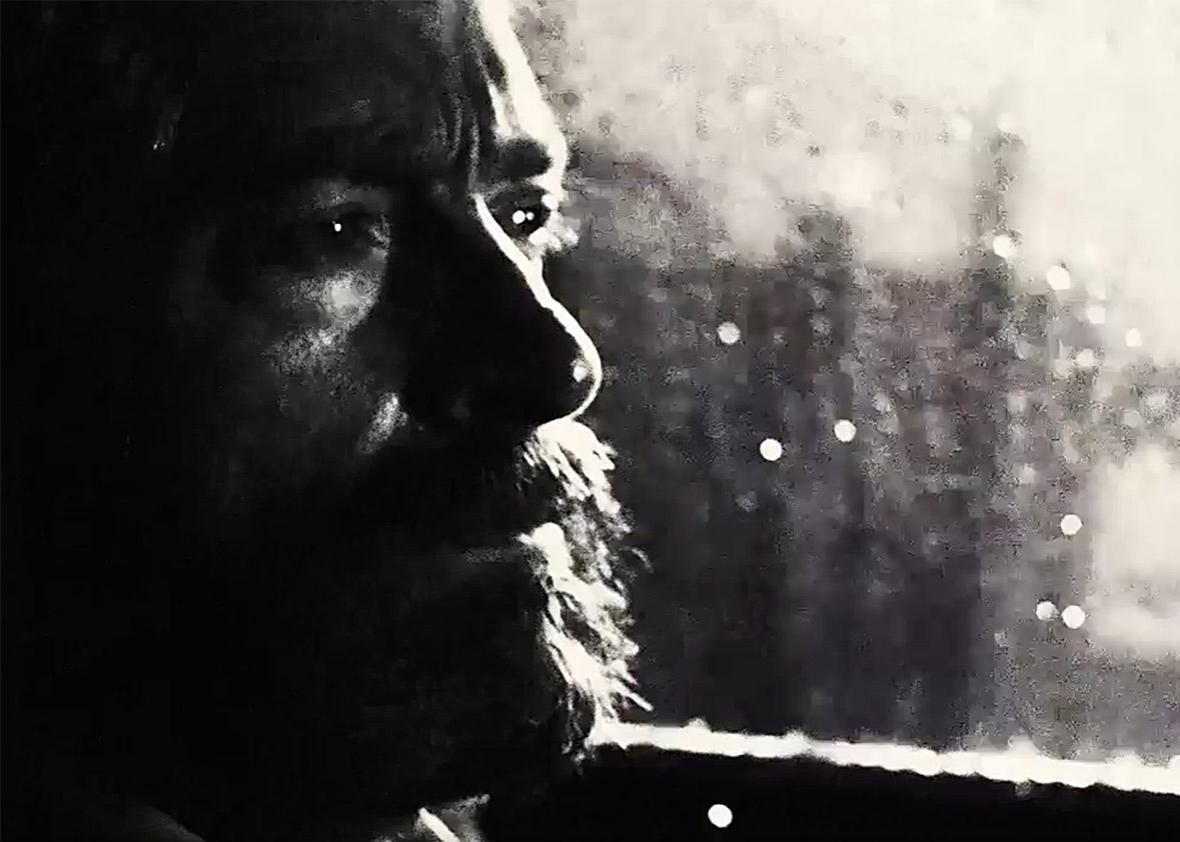It is actually a compliment to say that Logan, the 10th but not last film in 20th Century Fox’s bloated, occasionally transcendent, and fast-expiring X-Men franchise, feels tired. It once again stars Hugh Jackman as Marvel Comics’ Wolverine—a fan-favorite antihero with memory issues, a grumpy demeanor, and those adamantium blades—but it isn’t another loud, character-crammed, Easter egg–stuffed mutant adventure. Instead it has a small cast, a dust-flecked setting, a tragic explanation for why most of the other X-Men are not there, and an aging, defeated Logan, who has never been more in need of redemption and who has never felt farther from it. It’s Unforgiven, with claws.
The year is 2029, mutants seem to have been killed off in a federally sanctioned act of corporate genocide, and Wolverine has left the world-saving business. He drives a limo around El Paso, chauffeuring bachelorette parties and convention-goers. He drinks too much. He brings cash and medicine to a fading Charles Xavier (Patrick Stewart), once the X-Men’s telepathic mentor. And sometimes, such as when he finds a gang trying to strip his limo of its parts, he goes berserk, adding notches to a history of carnage that, thanks to a self-healing superpower that finally seems to be giving out, now stretches several lifetimes. “There’s no living with a killing. There’s no going back from it,” goes a famous line from the 1953 Western Shane, which a character will watch later on in Logan. “Right or wrong, it’s a brand that sticks.” Yes, it sticks—and in Logan’s case it crushes.
There is a reason Logan features late-period Johnny Cash songs in its trailer and end credits, was made by Cash biopic director James Mangold, and is based in part on “Old Man Logan,” a dystopian comic-book storyline with an Eastwoodesque Wolverine. It is not a superhero flick as we have come to know the genre but a road movie and a Western, one that plays with the myth of the aging cowboy. Logan has killed too much and at times cared too little, and he is being called to account on this, his final ride.
Interrupting that self-destructive malaise is Laura (Dafne Keen, fantastic), a young girl who (it ruins nothing to reveal) also happens to have metal-coated claws that pop out of her hands (and feet!), and whose immediate connection to Logan is mysterious. She is dangerous, trained to kill, but also an innocent, and Xavier convinces a skeptical Logan that they must ferry her north, where she and others plan to escape to eternally tolerant Canada. On their heels are the Reavers, a group of tattooed cyborg bounty hunters led by Donald Pierce (Boyd Holbrook), a charismatic psychopath who tells Logan, shortly after threatening him, “I’m a big fan, by the way.” They will chase Logan, Xavier, and Laura north, and eventually the Reavers’ employer will sic an even deadlier adversary on the fleeing trio.
No X-Men film has ever been more gory, but the fight choreography, however frenzied, often borders on balletic, particularly when Keen is in the frame, sliding beneath her enemies’ legs and catapulting into moving vehicles. (As far as cinematic child assassins go, she might be up there with Mathilda and Hanna.) But Logan is more frequently meditative, with quiet car rides across barren landscapes, meals with kind strangers, and long hikes toward the possibility of grace.
Sometimes Logan mistakes silence for subtlety, and like many aging heroes, the 137-minute film could have benefited from trimming a little fat from its midsection. Even in Jackman’s empathetic hands, Wolverine has always been a little icy, and the film’s laser focus on character falls just short of penetrating to Logan’s core. The movie is nevertheless a revealing study of two ragged men whose defining gifts are now destroying their minds and bodies. Xavier, who has the most powerful brain on the planet, now suffers from a dementia that unleashes “psychic tremors” that debilitate anyone nearby. When we first see him, Logan and another mutant, Caliban (Stephen Merchant, here a charming sad-sack), have squirreled the professor away in the Mexican desert, where he is raving like King Lear and reciting lines from Taco Bell commercials. Logan, meanwhile, walks with a limp and has trouble popping one of his claws; the exotic metal that was laced to his body in a government experiment now seems to be killing him. But both men are far more wounded by an unarticulated guilt for their fallen fellow X-Men, and a melancholy for the wreckage of old utopian hopes. Not long after Logan gives Xavier his medicine to calm his fragile mind, the professor says, “What a disappointment you are.”
In Laura, both men see their final chance to redeem themselves. For Xavier, she might be an opportunity to rescue his dream of human-mutant harmony. And for Logan, Xavier’s last surviving student, Laura offers a break from a life in which everyone he has loved has died, often for his sins. Is simply being her protector enough to purge his moral rot—or must he finally become something more?
Logan answers that question in a thrilling final sequence that resonates greatly with our present moment—I won’t spoil the scene other than to say that it involves a group of talented outsiders dashing for that Canadian border. But the real magic of Jackman’s final minutes as the character he’s inhabited for 17 years rests solely on his and Keen’s careful performances and on Mangold’s directorial patience. We don’t get all the way in, but we get close enough to know there’s a beating heart inside that adamantium ribcage.
